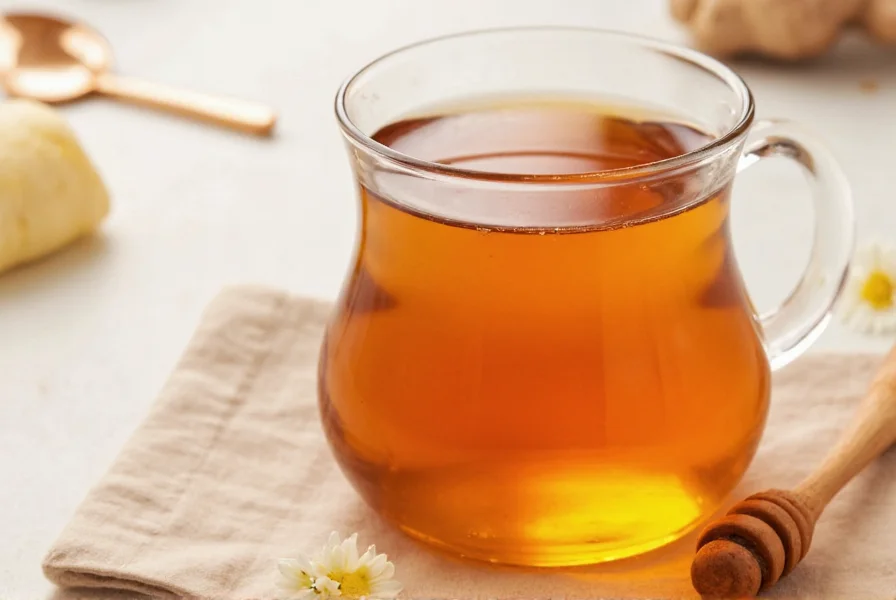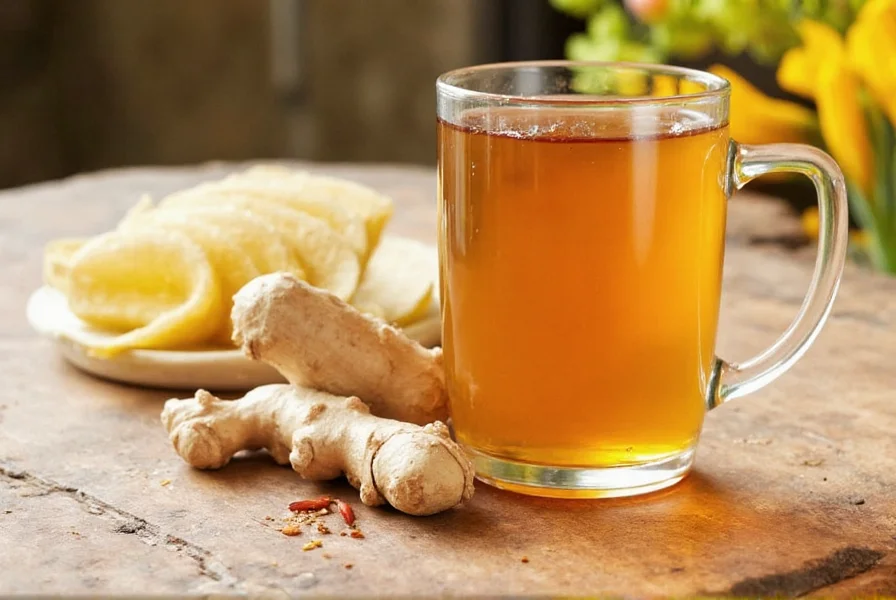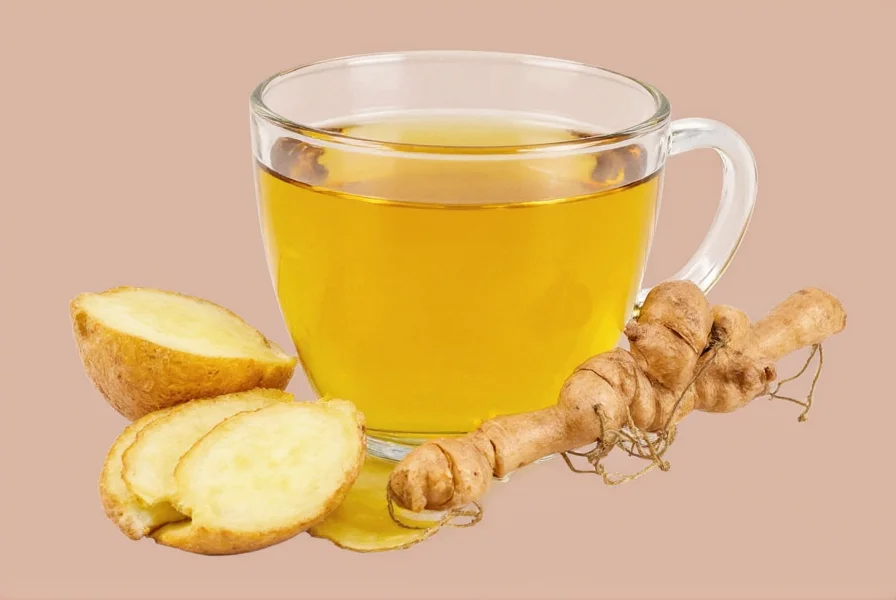Honey ginger tea represents one of the most time-tested natural wellness beverages, blending two powerful ingredients with documented properties. Recent research continues to validate what traditional medicine practitioners have known for generations: this simple combination offers multiple potential wellness benefits when consumed appropriately. The active compounds in ginger root, particularly gingerols, work synergistically with honey's natural enzymes to create a beverage that supports the body's natural defenses.
The Science Behind Honey Ginger Tea Benefits
Ginger contains potent bioactive compounds called gingerols that demonstrate significant anti-inflammatory and antioxidant effects according to multiple peer-reviewed studies. Honey, particularly raw varieties, contains natural enzymes and trace nutrients that remain intact when not exposed to high temperatures. When combined in tea form, these ingredients create a synergistic effect that may enhance their individual properties.
Research published in the Journal of Food Science indicates that ginger's compounds remain stable in warm (not boiling) water, preserving their beneficial properties. Similarly, studies in the Journal of Agricultural and Food Chemistry show that honey maintains more of its beneficial enzymes when added to cooled tea rather than boiling liquid. This scientific understanding directly informs the optimal preparation method for maximum benefit.
Preparing Honey Ginger Tea for Maximum Benefit
The preparation method significantly impacts the effectiveness of honey ginger tea. Follow these evidence-based steps for optimal results:
| Preparation Step | Scientific Rationale | Time/Temp Guidelines |
|---|---|---|
| Peel and thinly slice fresh ginger root | Increases surface area for optimal compound extraction | Use 1-2 inches of ginger per cup |
| Steep in hot (not boiling) water | Preserves heat-sensitive compounds in ginger | 195°F (90°C), 10-15 minutes |
| Cool slightly before adding honey | Maintains honey's beneficial enzymes | Below 140°F/60°C |
| Add 1-2 teaspoons of raw honey | Provides optimal concentration of beneficial compounds | Per 8oz serving |
For those seeking honey ginger tea benefits for cold relief, consider adding a slice of lemon to increase vitamin C content. The citric acid helps preserve additional beneficial compounds while providing complementary support for the immune system. This variation creates what many refer to as honey ginger lemon tea benefits for respiratory wellness.

Evidence-Based Wellness Applications
When considering does honey ginger tea help with digestion, multiple clinical studies provide insight. Research in the European Journal of Gastroenterology & Hepatology found ginger significantly accelerated gastric emptying, which explains why many people experience relief from occasional digestive discomfort after consuming ginger tea.
For respiratory support, a systematic review in the Journal of Alternative and Complementary Medicine noted that the combination of honey and ginger demonstrated soothing properties for irritated throat tissues. This explains why so many people seek how to make honey ginger tea for sore throat relief during cold season.
Regarding honey ginger tea for weight loss, current evidence suggests modest support rather than dramatic effects. The beverage may help with hydration and provide a satisfying alternative to sugary drinks, but should not be viewed as a standalone weight management solution. The thermogenic properties of ginger may slightly increase metabolic rate, but this effect is minimal compared to comprehensive lifestyle approaches.
Optimal Consumption Timing
Understanding the best time to drink honey ginger tea maximizes its potential benefits:
- Morning consumption (30 minutes before breakfast) may support healthy digestion throughout the day
- Evening consumption (1-2 hours before bed) can promote relaxation without caffeine interference
- During cold season, regular consumption throughout the day may provide ongoing respiratory support
- After meals can aid occasional digestive discomfort

Safety Considerations and Limitations
While generally safe for most adults, certain considerations apply when enjoying honey ginger tea. Individuals taking blood-thinning medications should consult their healthcare provider before regular consumption, as ginger may interact with these medications. Those with gallstone issues should also exercise caution, as ginger may increase bile production.
Regarding honey ginger tea side effects, excessive consumption (more than 4 cups daily) may cause heartburn or stomach upset in sensitive individuals. Children under 1 year should never consume honey due to botulism risk, regardless of preparation method. Pregnant women should limit ginger intake to moderate amounts and consult their healthcare provider.
It's crucial to understand that while honey ginger tea offers potential wellness benefits, it should complement rather than replace professional medical care for serious health conditions. This natural beverage works best as part of a comprehensive approach to wellness that includes balanced nutrition, adequate hydration, and appropriate medical care when needed.
Frequently Asked Questions
What are the primary honey ginger tea benefits for cold symptoms?
Honey ginger tea may help soothe sore throats and reduce cough frequency associated with colds. The warm liquid provides immediate throat comfort, while ginger's anti-inflammatory compounds may help reduce irritation. Honey's texture creates a protective coating on throat tissues. Research suggests this combination works best when consumed regularly during cold season rather than as a single remedy.
How does honey ginger tea support digestive health?
Ginger contains compounds that may accelerate gastric emptying and reduce occasional digestive discomfort. When combined with honey in tea form, these properties become more bioavailable. Consuming honey ginger tea 30 minutes before meals may prepare the digestive system, while drinking it after meals can help with occasional post-meal discomfort. The warmth of the tea also promotes relaxation of digestive muscles.
Can I make honey ginger tea with ground ginger instead of fresh?
Yes, you can use ground ginger, though fresh ginger generally provides more potent benefits. Use 1/4 teaspoon of ground ginger per cup as a substitute for 1 inch of fresh ginger. Keep in mind that ground ginger has been dried and processed, which may reduce some of the active compounds. For optimal results when using ground ginger, steep for 15-20 minutes to maximize extraction of beneficial compounds.
How often can I safely drink honey ginger tea?
Most adults can safely enjoy 1-3 cups of honey ginger tea daily. Excessive consumption (more than 4 cups) may cause heartburn or digestive upset in some individuals. Those with specific health conditions or taking certain medications should consult their healthcare provider about appropriate consumption levels. Remember that moderation is key when incorporating any wellness beverage into your routine.
Does honey ginger tea really boost immunity?
Honey ginger tea supports the body's natural defenses rather than directly "boosting" immunity. The antioxidants in both ingredients help reduce oxidative stress, while the soothing properties may support respiratory health. Regular consumption as part of a healthy lifestyle may contribute to overall wellness, but it shouldn't be viewed as a standalone immune solution. Think of it as one component of a comprehensive approach to maintaining wellness.











 浙公网安备
33010002000092号
浙公网安备
33010002000092号 浙B2-20120091-4
浙B2-20120091-4